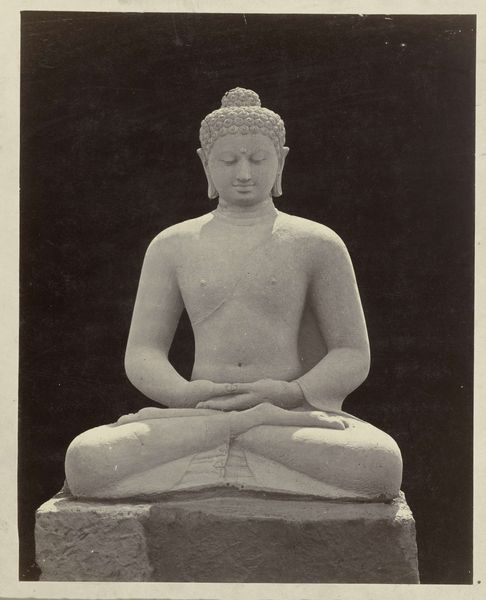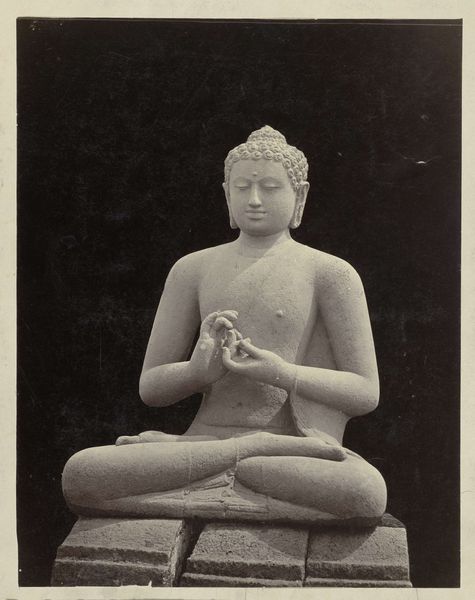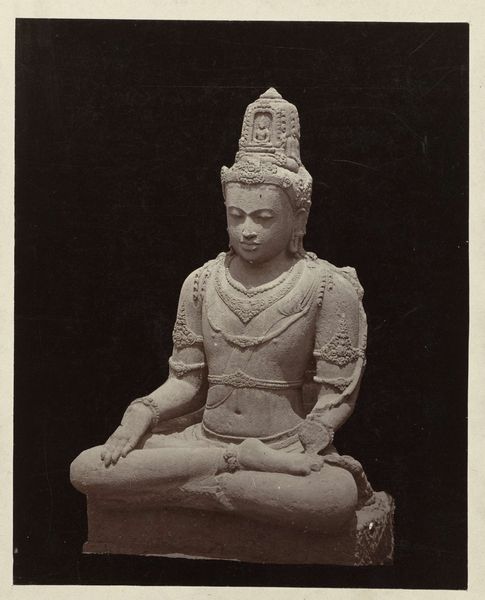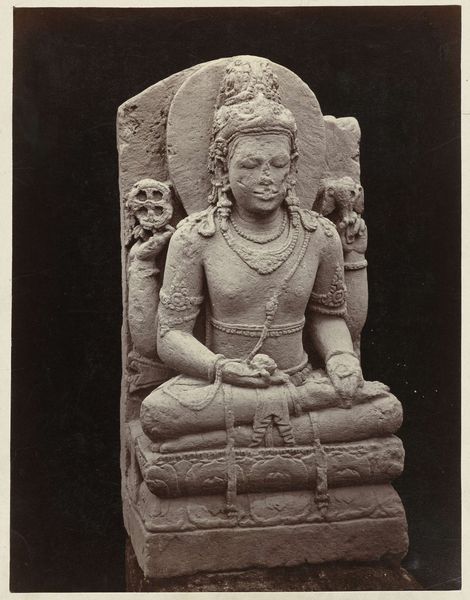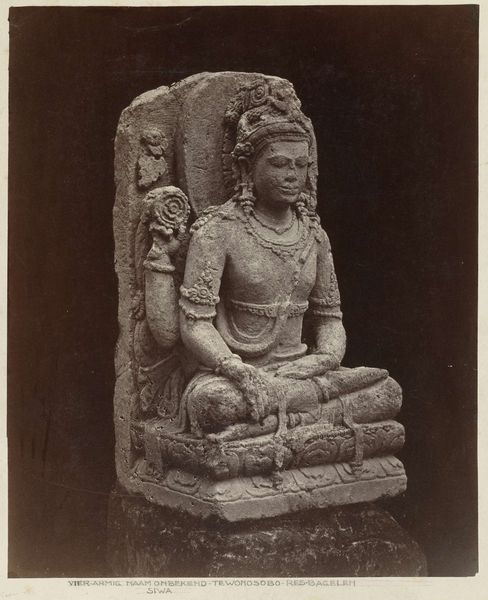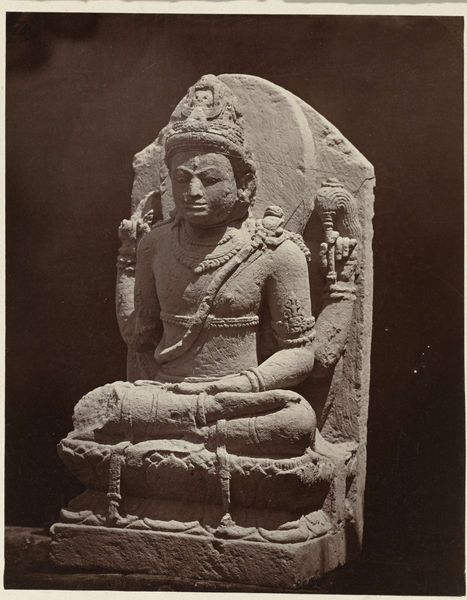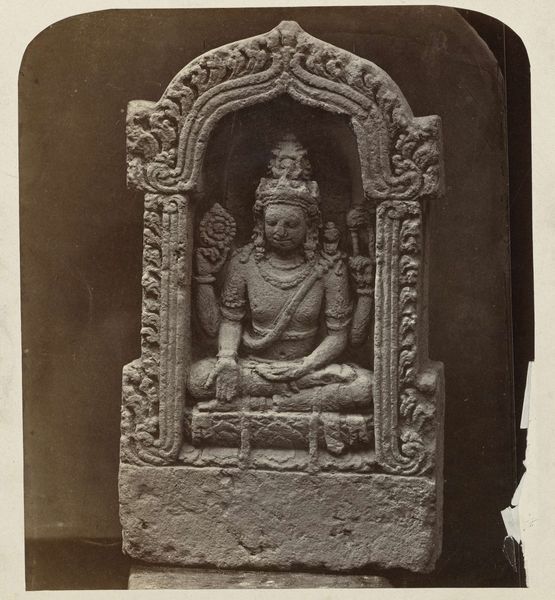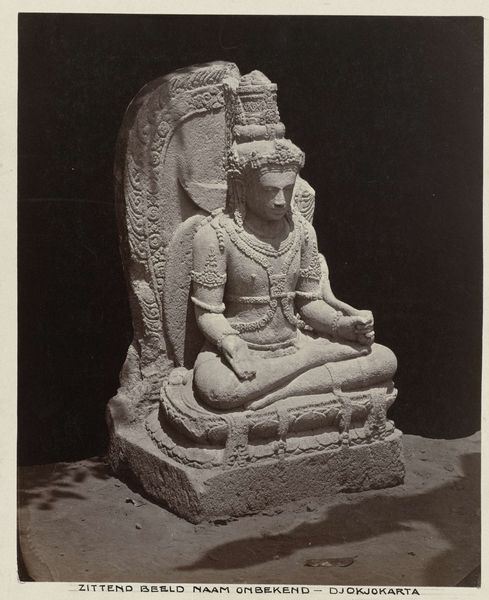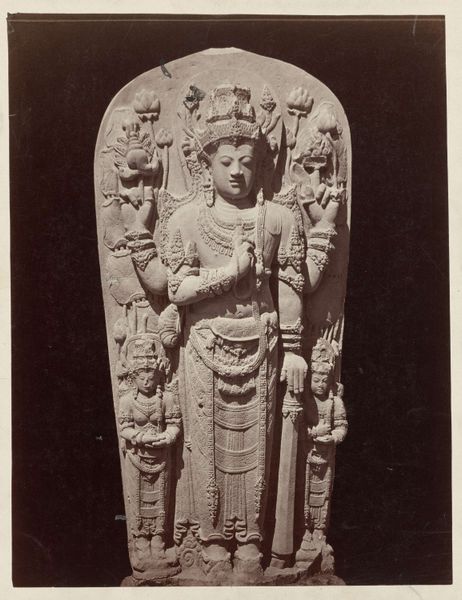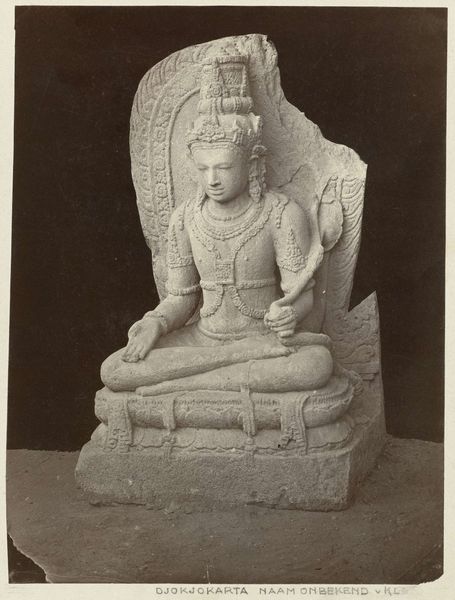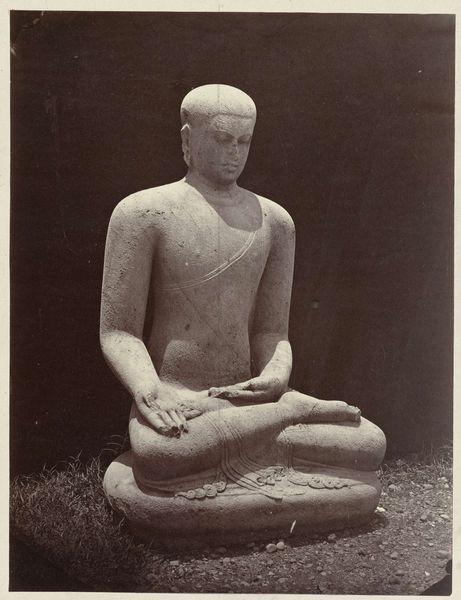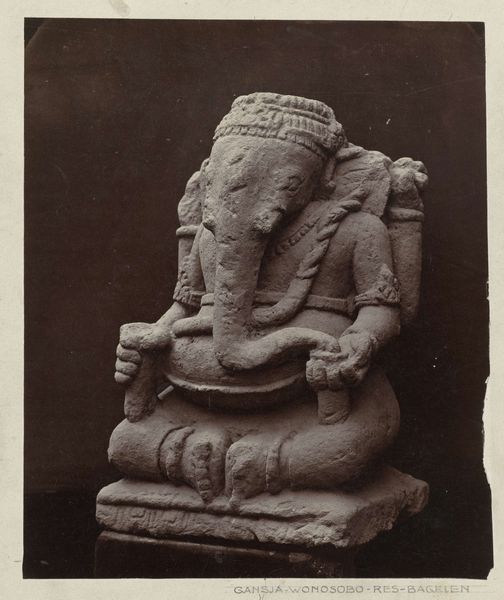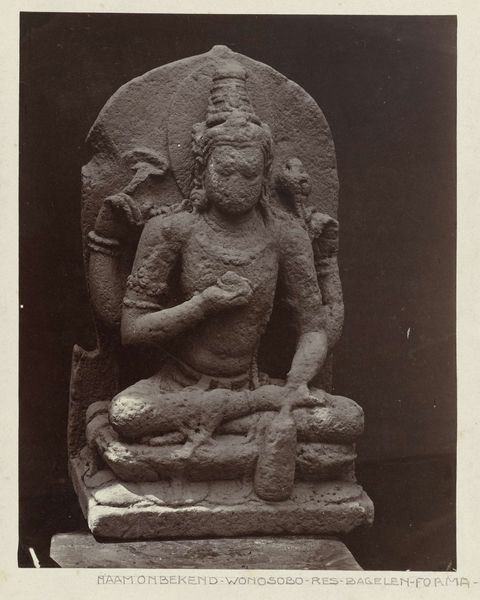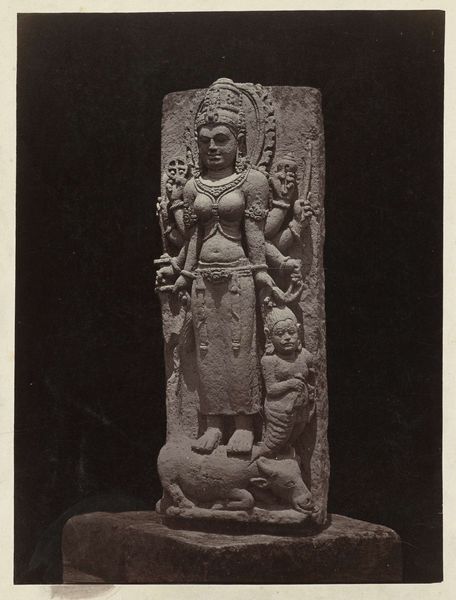
Beeld van Boeddha in bhumisparsamudra afkomstig uit een nis aan de oostmuur van de Borobudur. Possibly 1873 - 1879
0:00
0:00
#
wedding photograph
#
photo restoration
#
sculpture
#
charcoal drawing
#
sculptural image
#
charcoal art
#
unrealistic statue
#
framed image
#
19th century
#
statue
Dimensions: height 300 mm, width 240 mm
Copyright: Rijks Museum: Open Domain
Isidore Kinsbergen made this photograph of a Buddha statue in bhumisparsamudra, or ‘earth-touching’ mudra, at Borobudur. This image invites us to consider the public role of art and the politics of imagery in colonial Indonesia. Kinsbergen, a Dutch photographer, was commissioned to document the Borobudur temple complex, a site of immense cultural and religious significance. The temple had been abandoned centuries earlier, so this photograph serves as an early example of Dutch colonial interest in Indonesia's past, even as they exploited the country's present. The bhumisparsamudra symbolizes the moment of Buddha's enlightenment. This image, created in the context of Dutch colonialism, prompts us to question how the image may have been used to further colonial agendas. For example, the photograph could have been used to generate exoticism. To understand the significance and meaning of this image, we can investigate Dutch colonial history, religious studies, and the history of photography in Indonesia. By understanding the social and institutional contexts of art, we gain a deeper appreciation of its complex meanings and implications.
Comments
No comments
Be the first to comment and join the conversation on the ultimate creative platform.
